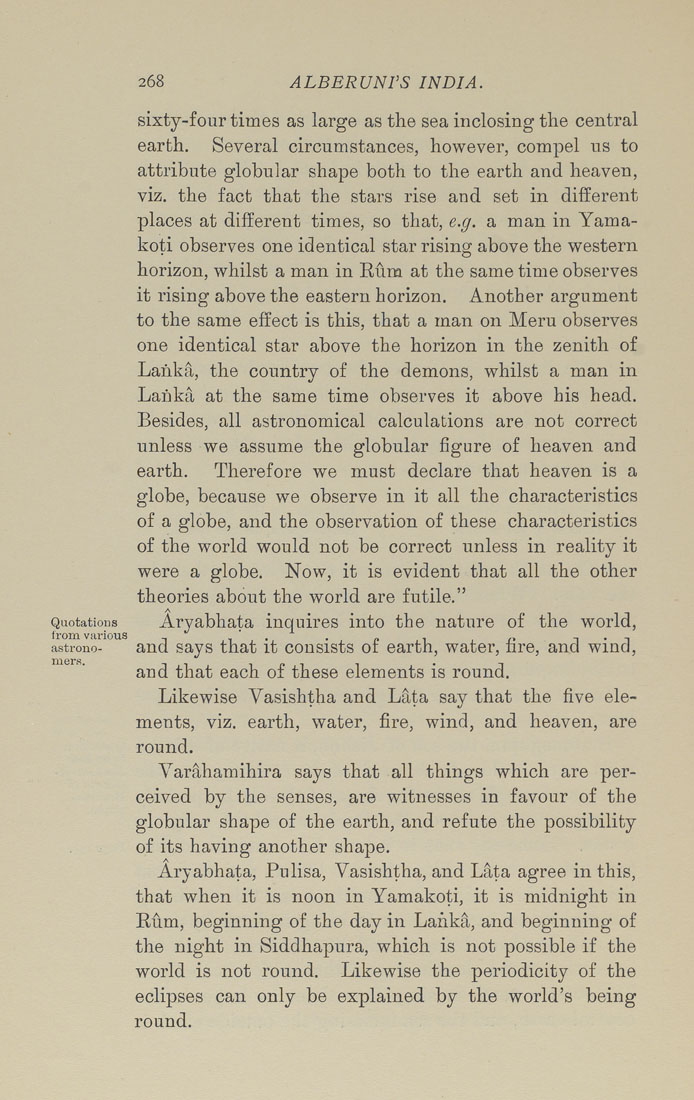Bīrūnī, Muḥammad ibn Aḥmad, Alberuni's India (v. 1)
(London : Kegan Paul, Trench, Trübner & Co., 1910.)
|
||
|
|
|
|
| Page 268 |

268 ALBERUNPS INDIA. sixty-four times as large as the sea inclosing the central earth. Several circumstances, however, compel us to attribute globular shape both to the earth and heaven, viz. the fact that the stars rise and set in different places at different times, so that, e.g. a man in Yama¬ koti observes one identical star rising above the western horizon, whilst a man in Rum at the same time observes it rising above the eastern horizon. Another argument to the same effect is this, that a man on Meru observes one identical star above the horizon in the zenith of Lanka, the country of the demons, whilst a man in Lanka at the same time observes it above his head. Besides, all astronomical calculations are not correct unless we assume the globular figure of heaven and earth. Therefore we must declare that heaven is a globe, because we observe in it all the characteristics of a globe, and the observation of these characteristics of the world would not be correct unless in reality it were a globe. Now, it is evident that all the other theories about the world are futile." Quotations Arvabhata inquires into the nature of the world, from various ~i "^ t • ■ p i (•• -\ • -t astrono- aud says that it consists ot earth, water, fare, and wind, and that each of these elements is round. Likewise Vasishtha and Lata say that the five ele¬ ments, viz. earth, water, fire, wind, and heaven, are round. Varahamihira says that all things which are per¬ ceived by the senses, are witnesses in favour of the globular shape of the earth, and refute the possibility of its having another shape, Aryabhata, Pulisa, Vasishtha, and Lata agree in this, that when it is noon in Yamakoti, it is midnight in Rum, beginning of the day in Lafika, and beginning of the night in Siddhapura, which is not possible if the world is not round. Likewise the periodicity of the eclipses can only be explained by the world's being round. mers. |
| Page 268 |







